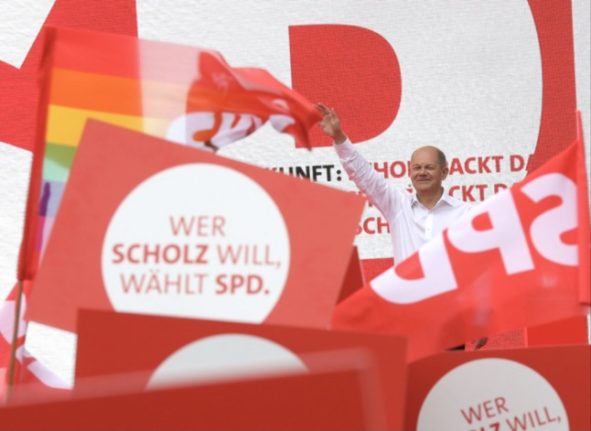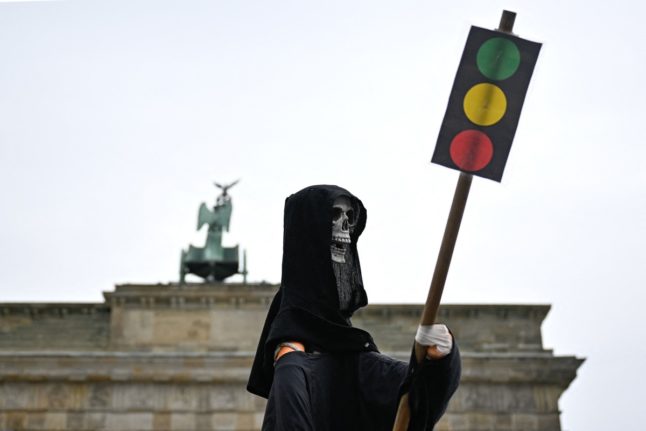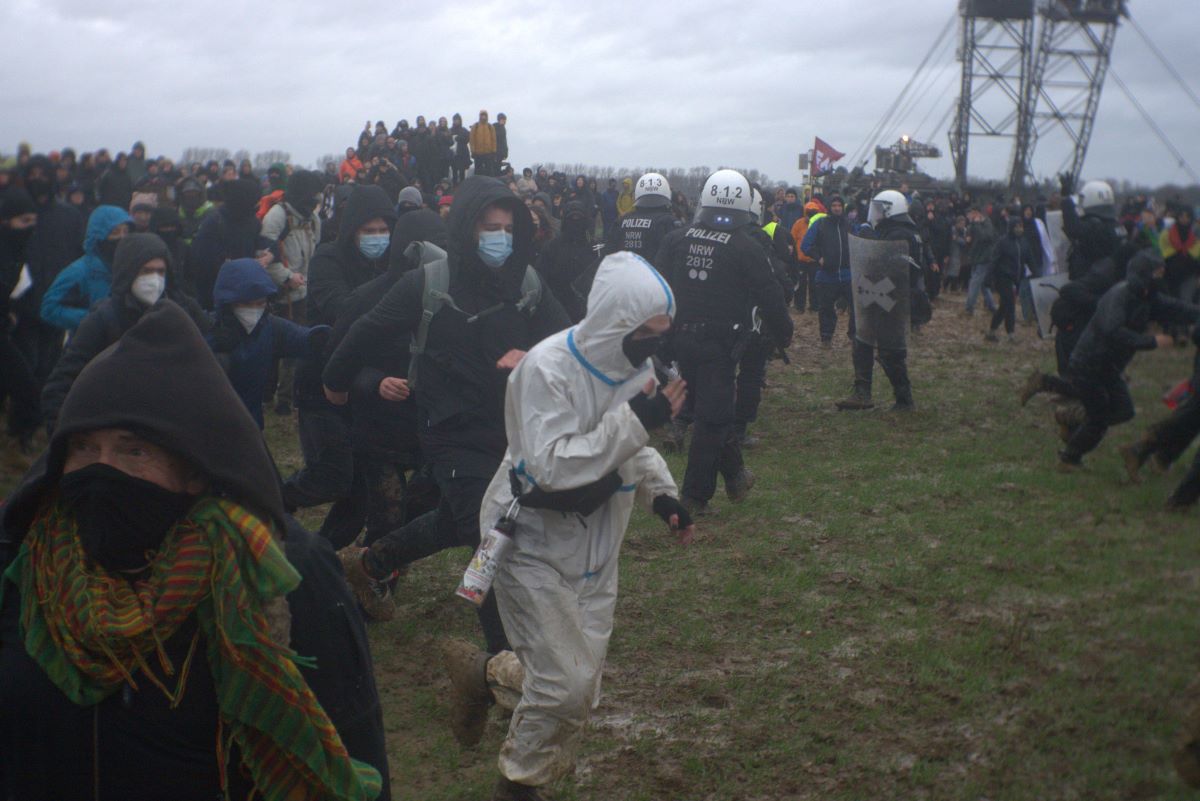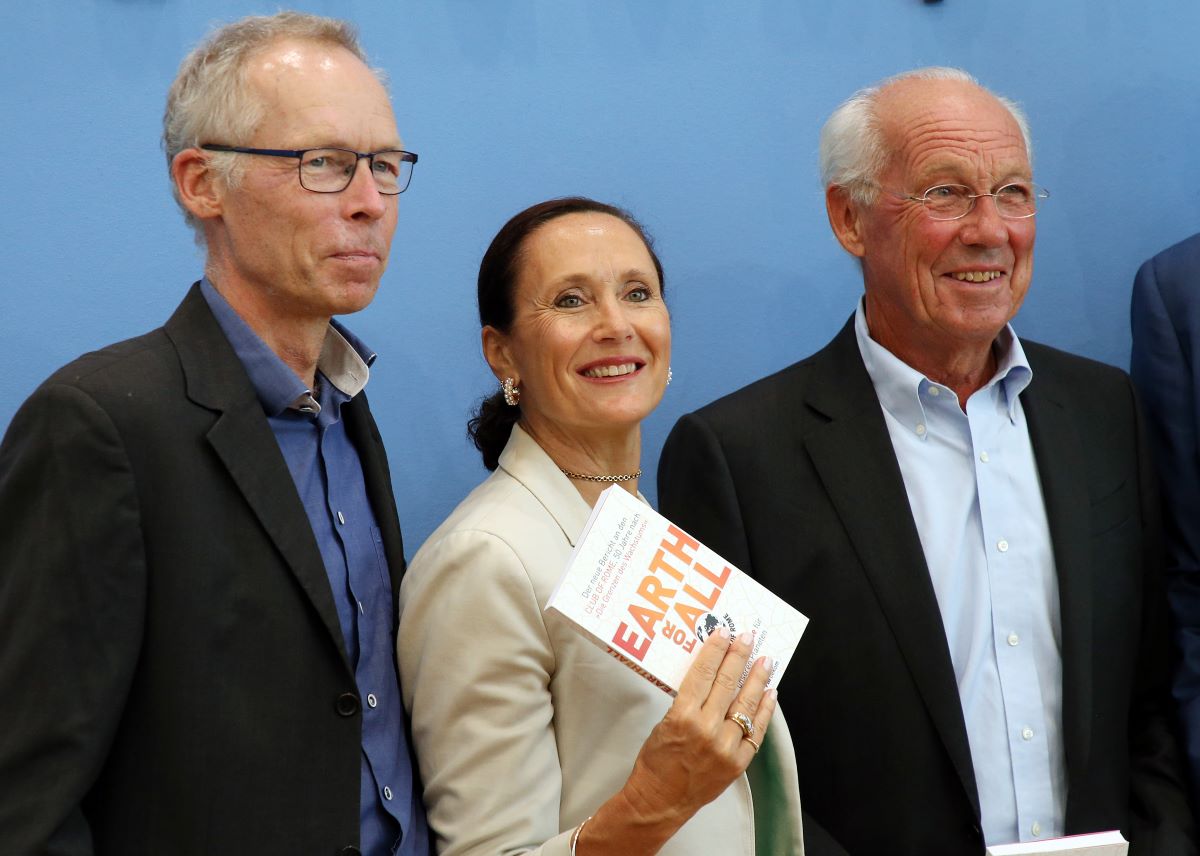As finance minister and vice-chancellor under Merkel, he enjoys a close relationship with the chancellor and has even sought to position himself as the true Merkel continuity candidate, despite hailing from a different party.
He was pictured recently on the cover of the Sueddeutsche Zeitung magazine adopting Merkel’s famous “rhombus” hand gesture — a stunt that provoked consternation from rivals in Merkel’s CDU camp.
Nicknamed “Scholzomat” for his robotic speeches, Scholz has hardly stood out for his charisma in the run-up to Sunday’s election.
But unlike his two main rivals, Armin Laschet of Merkel’s CDU-CSU alliance and Annalena Baerbock of the Greens, the 63-year-old has also managed not to make embarrassing mistakes on the campaign trail.
READ ALSO: Greens faced dashed hopes but new leverage with German vote
As a result, he is now the favourite to head Germany’s next coalition government.
During his time as finance minister, Scholz has cemented his reputation for being on the fiscally conservative side of his workers’ party.

Cautious approach
Despite agreeing to suspend Germany’s cherished “debt brake” to stave off the crippling effects of the coronavirus pandemic, he has insisted on a return to the policy by 2023.
“All this is expensive, but doing nothing would have been even more expensive,” he said at the time.
Scholz’s cautious approach has at times seen him marginalised within the SPD, overlooked in a leadership vote in 2019 in favour of two relatively unknown left-wingers.
But he has got behind the SPD’s flagship policies in the election campaign, backing a planned wealth tax and an increase in the minimum wage.
Despite his tight grip on Germany’s finances, Scholz has been known to loosen the purse strings, notably as mayor of Hamburg from 2011 to 2018, when he bailed out the wildly over-budget Elbphilharmonie concert hall.
For Scholz, whose motto is “I can only distribute what I have”, the spending was justified by the city-state’s healthy finances.
Born in the northern city of Osnabrueck, Scholz joined the SPD as a teenager.
He flirted with its more left-wing ideals but soon came to prefer a more centrist course.
After training as a lawyer specialising in labour issues, Scholz was elected to the national parliament in 1998. He married fellow SPD politician Britta Ernst that same year.

‘Not particularly emotional’
It was during his 2002-2004 stint as the SPD’s general secretary that he earned the “robot” moniker for his dry yet tireless defence of the unpopular labour reforms of his idol, then-chancellor Gerhard Schroeder.
As labour minister in Merkel’s first coalition government from 2007 to 2009, Scholz helped avert mass lay-offs during the financial crisis by convincing firms to cut workers’ hours with the state topping up their salaries — a policy repeated during the pandemic.
The SPD’s deputy leader for almost a decade, he also backs deeper eurozone integration and greater German contributions to the EU budget post-Brexit.
Scholz himself has admitted he is “not someone who is particularly emotional in politics”.
But his calm demeanour has helped him weather some turbulent times during his stint as finance minister, including the Wirecard fraud debacle.
Wirecard, once a rising star on the German fintech scene, filed for bankruptcy last year in what has been described as Germany’s biggest post-war accounting scandal.
READ ALSO: Why Germany’s finance minister has come under fire over Wirecard scandal
More recently, Scholz has come under fire over allegations that the FIU anti-money laundering authority, under his finance ministry, failed to report potential wrongdoing to the relevant authorities.
But when he was attacked by Laschet during a TV debate over the money-laundering claims, Scholz appeared mostly unfazed, briefly interrupting only to accuse him of “twisting the facts”.
In a snap poll after the 90-minute debate, viewers declared Scholz the winner.
READ ALSO: ‘Most Merkel-like candidate’: SPD’s Scholz wins final German election TV debate





 Please whitelist us to continue reading.
Please whitelist us to continue reading.
Member comments